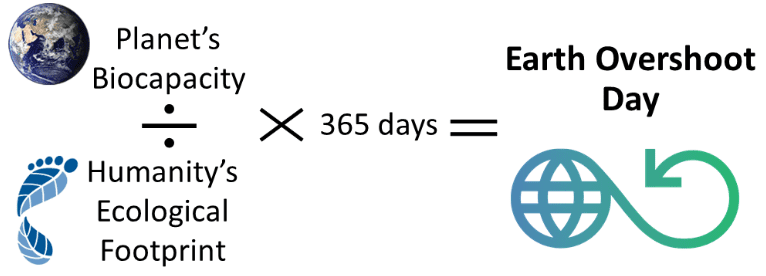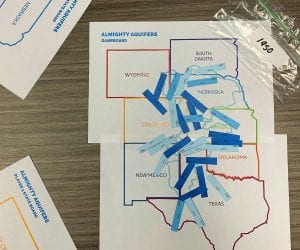Earth Overshoot Day – Past, Present, and Future
On August 2nd we humans will have used more of Earth’s natural resources than our planet can regenerate in the year – it is Earth Overshoot Day. Every year the Global Footprint Network tracks nations’ natural resource capacity, or the amount of natural resources generated annually within a country, and use this information to determine the nation’s ecological impact on the planet.
As a whole, we are consuming resources faster than the Earth can renew them. With each passing year, the day our society overshoots Earth’s resources comes earlier and earlier on our calendars as humanity demands more and more from the planet. This year Earth Overshoot Day is August 2nd. Twenty years ago it was September 30th and twenty ears before that, Earth Overshoot Day was November 1st. What will be be next year? Overshoot Day could come as early as July. At our current pace of over-consumption, the date will fall in June by 2030.
How We’re Overusing Earth’s Resources
So what are these ecological resources and services, and how are we overusing them? Each nation has a biocapacity, its ability to generate renewable resources like trees or fish and to absorb wastes like carbon dioxide. Simultaneously, each nation on Earth spends this biocapacity, creating an ecological footprint by using those natural resources and emitting carbon dioxide. When our footprint is larger than our biocapacity, we overshoot the planet’s ability to regenerate its natural resources.

The unsustainable levels of deforestation, fishing, farming, and energy use all contribute to our collective ecological deficit. And with a global population of 7.5 billion and rising, these impacts are expanding and intensifying.
Move the Date
Earth Overshoot Day challenges us to rein in our ecological footprint and #movethedate of Earth overshoot later in the calendar again. A sustainable future for the planet is not out of reach, and there’s a lot each of us can do to make that happen. First you can take a Footprint quiz to get a better idea of your personal impacts. Choosing more locally-sourced foods, avoiding highly processed products and eating less meat (#meatlessmondays) cuts down on the amount of energy it costs to feed us. Using public transportation, buying recycled paper products, and only consuming sustainably harvested fish (app: Seafood Watch) can also contribute to reducing your impact. Lastly, you can reach out to the leaders in your city and state (find your representative) and request they support initiatives for things like renewable energy, green buildings, and public transportation, and challenge them to #movethedate!
Teachers – Use the PopEd lesson Watch Your Step to integrate the Footprint Quiz into your teaching and allow students to compare/contrast footprints of people living in different countries.




